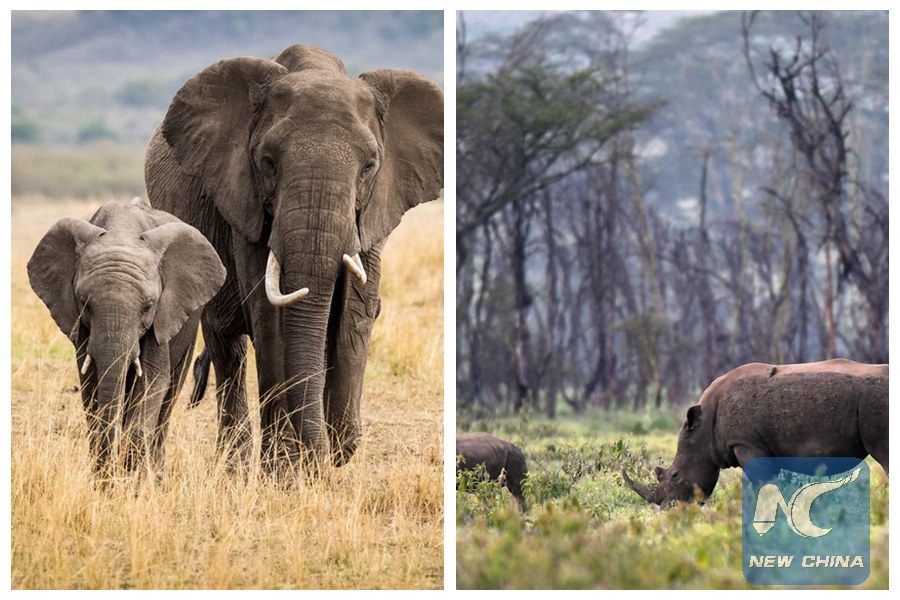
NAIROBI, Feb. 14 (Xinhua) -- Kenya is experiencing a sharp decline in elephant and rhino poaching, a senior government official has said.
Najib Balala, Cabinet Secretary in the Ministry of Tourism and Wildlife, told a media briefing Tuesday in Nairobi that Kenya lost nine rhinos and 60 elephants to poachers in 2017, compared to 14 rhinos and 96 elephants lost in the previous year.
"The rapid decline in wildlife poaching is due to concerted government efforts to protect national parks and game reserves that began in 2012," Balala said during a ceremony to hand over 26 vehicles to the Kenya Wildlife Service for use for field operations.
The East African nation passed a wildlife law in 2014 that enhanced penalties for those convicted of poaching and engaging in illicit trade in protected wildlife species.
Balala said a sensitization campaign in the key source markets of animal products such as ivory has also led to a reduction in wildlife poaching.
He said the government is committed to end poaching of wildlife in order to protect Kenya's natural heritage.
"Wildlife is a key pillar of the economy because it is the mainstay of the tourism sector that is one of the largest sources of foreign exchange," he added.
Balala said encroachment of animal habitats due to human activities is also threatening wildlife populations.
"As a country we need to find a balance between economic development and wildlife conservation so that we save our natural resource for future generations," he said.

